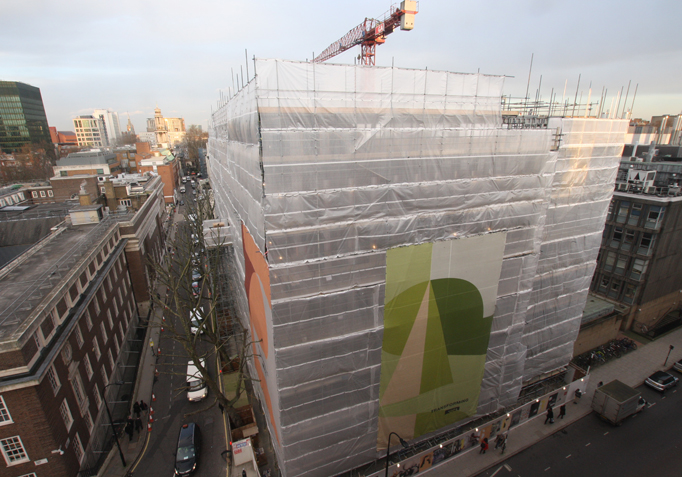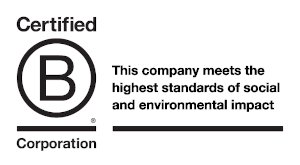Last week, Daniel Raymond, Associate Sustainability Consultant at Useful Simple Projects, attended the topping out ceremony for 22 Gordon Street (previously Wates House), home of The Bartlett Faculty of the Built Environment, UCL. Here he writes about some of the energy saving and sustainability features which were incorporated into the design.
This is one of three major projects we are currently working on with UCL (see also UCL’s New Student Centre and their Biomedical Engineering Hub). Our role on these projects has been to provide environmental design advice as well as to develop the energy and sustainability strategies.
The refurbishment of 22 Gordon Street will include the addition of extra floors, an expansion to the south side of the building, brand new design studios, new social and café areas, a dedicated exhibition space and expanded workshops facilities – all wrapped in a new, high-performing thermal envelope.
A well-designed building envelope plays the most crucial role in reducing energy demand in any good energy strategy. This is certainly the case at 22 Gordon Street, where enhanced fabric efficiencies with high levels of insulation and air tightness all help to minimise the amount of energy required for space heating. Specifying a good fabric efficiency ensures energy demand is minimised before expensive mechanical systems are even considered. Lower demands also allow for smaller plant, saving space and reducing long-term running costs.
For densely occupied buildings such as 22 Gordon Street, the priority is not only keeping heat in during the winter, but also preventing summertime overheating. Windows with low g-values have been specified to keep out unwanted solar gain. Optimising the surface area of glazing and the use of solar shading will minimise excessive heat gains and reduce cooling demand.
Retaining the existing structure has helped to minimise the embodied impact of the project while leaving some of this thermal mass exposed will aid passive heating and cooling strategies, by storing heat in the winter and providing cooling in the summer, via a night-time cooling strategy.
UCL have set themselves ambitious and challenging sustainability targets and the refurbishment of existing buildings, like 22 Gordon Street, will play a key role in their ability to meet those targets. Among the other sustainability measures included in this refurbishment are a seasonal mixed-mode heating and cooling solution, connection to UCL’s District Heat network, rooftop PV installation and the provision of a sedum (green) roof.




